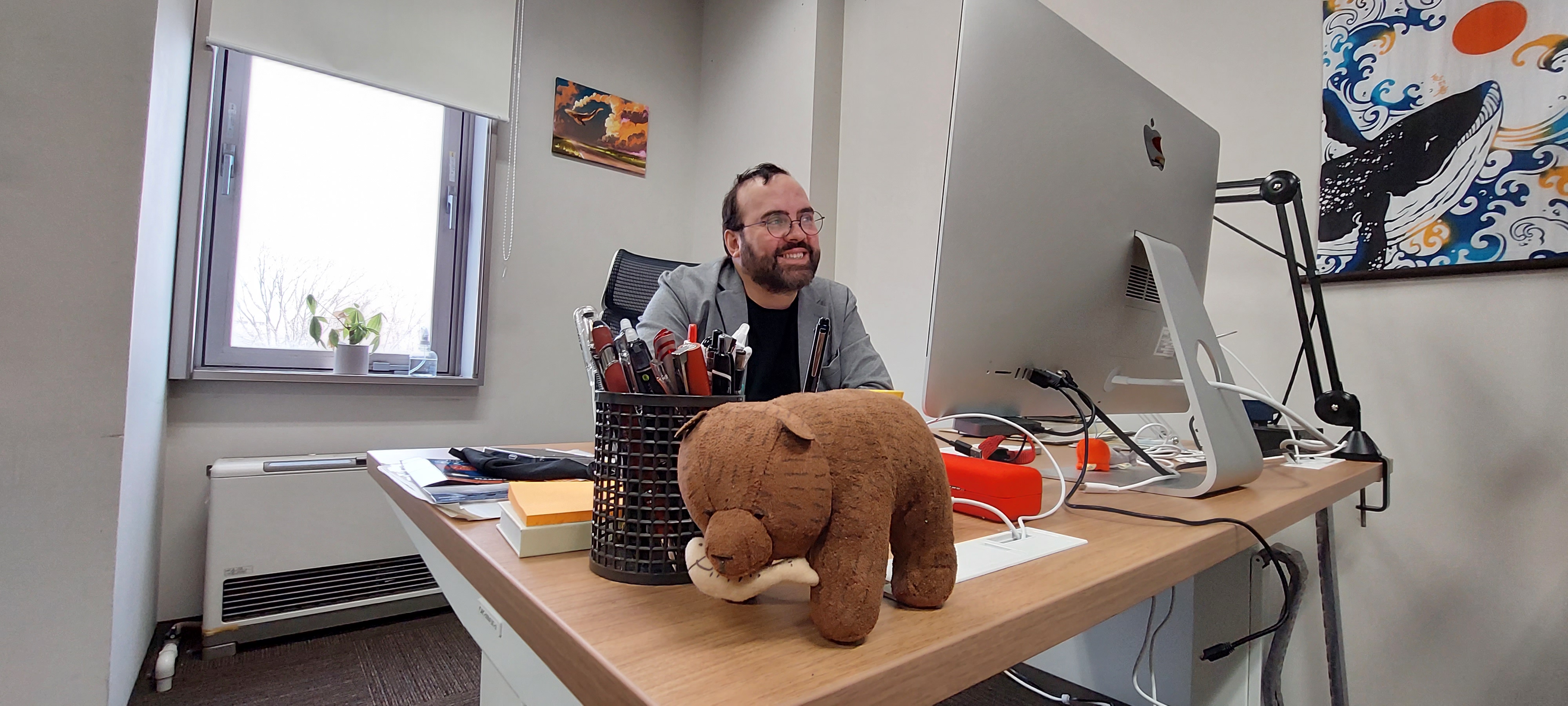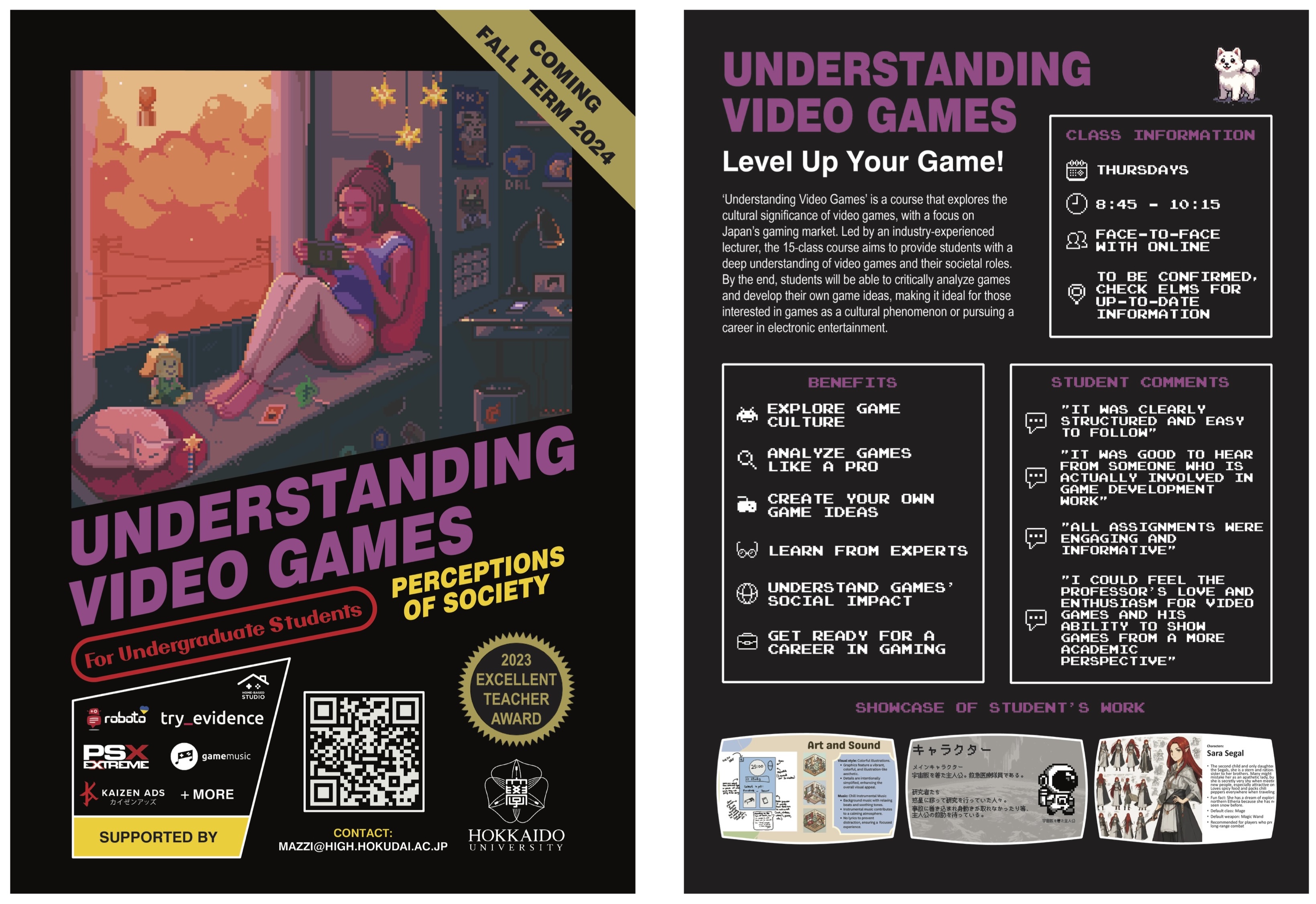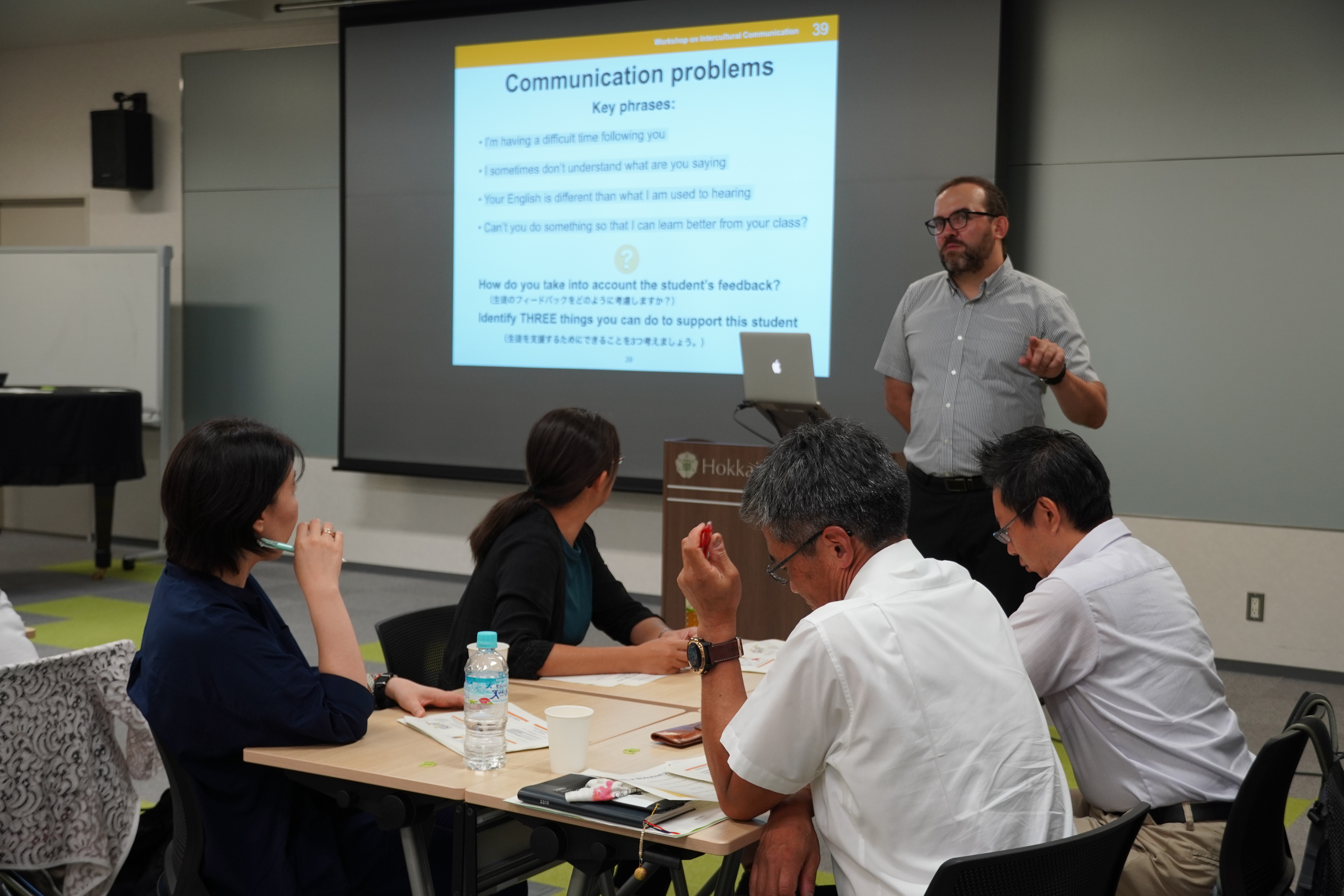スタッフ紹介 「My Journey Through Language, Code, and Culture」
2024/8/2
Michal MAZUR (Asst. Prof.)
My name is Michal Mazur (In Japanese: マズル ミハウ), and I am an Assistant Professor at the Center for Teaching and Learning (CTL) at Hokkaido University. I’m excited to share my journey, research, and education work. I design and facilitate seminars and workshops on intercultural communication, teaching in English, and pedagogy. My work involves conducting surveys and research on teaching practices to improve student engagement and learning outcomes. I strive to support educational quality, innovation, and internationalization.

Picture: Just another day at the office
From Language to Code: My Academic Path
My academic journey began in Poland, where I earned a Master’s in teaching language and literature at the Pedagogical University of Krakow. This foundation unveiled the transformative power of language and storytelling, fueling my passion for education.
Driven by a thirst for knowledge, I pursued further studies in Japan, thanks to a MEXT scholarship, at Otaru University of Commerce. My research there delved into cognitive linguistics, particularly using metaphors and the ‘Halo Effect’ in brand marketing. Eventually, my path led me to Hokkaido University, where I completed my Ph.D. in Information Science, specializing in Natural Language Processing.
While my background is in language studies, my interest in problem-solving led me to computer science. During my doctoral studies, I focused on second language learning, specifically vocabulary acquisition, to address limited vocabulary comprehension through technology. A key aspect of my doctoral research was using e-learning and code-switching to enhance students’ vocabulary in a second language.
Embracing Intercultural Communication
As part of my Faculty Development (FD) efforts at Hokkaido University and other institutions like the University of Tokyo, I facilitated over 30 workshops on trends in higher education (e.g., Online Teaching, Generative AI in Research and Education), course design, pedagogical skills, and English-medium instruction (EMI) teaching in multicultural classrooms. These experiences provided me with strategies for promoting multicultural coexistence and bilingual education. My proficiency in both English and Japanese enables me to address diverse linguistic needs.
Living and working in Japan made me realize the importance of understanding cultural nuances. While teaching English, I noticed students often struggled not with syntax but with grasping deeper meanings due to cultural differences, prompting a focus on intercultural communication.
As an educational developer at the CTL, I aim to prepare faculty and students for global citizenship. I strive to bridge gaps between languages and cultures, emphasizing that effective communication involves understanding the beliefs and perspectives shaping interactions.

Picture: Team-based learning in the classroom (Intercultural Communication)
Courses Designed for the Digital Age
My undergraduate course, “Intercultural Communication for Living in a Global Society,” equips students with skills to thrive in a diverse world by fostering cultural appreciation and teaching effective communication techniques.
Additionally, I teach “Understanding Video Games: The Role and Development of Video Games in Contemporary Society,” focusing on Japan’s significant role in the gaming market. This course emphasizes critical thinking, media literacy, and cultural analysis, providing students with essential skills for the digital age. I am honored to have recognized as the “Excellent Teacher” by Hokkaido University for my contributions to general education.
Another offering is my graduate-level course, “Preparing Future Faculty (PFF) - Practical Teaching Methods in Higher Education,” where I guide students in cultivating skills for university educators.

Picture: Poster to promote "Understanding Video Games" course
Research Interests and Teaching Philosophy
My research work (for more information, click the link to view my Researchmap) is deeply intertwined with my teaching, where I use class reflections and surveys to gather insights that inform my research. By creating a reciprocal feedback loop, students and teachers benefit from each other’s experiences. My research interests involve leveraging the classroom as a field for refining educational programs.
This dual role of educator and researcher enables me to adapt my teaching strategies and contribute data to global interdisciplinary studies. I analyze the efficacy of intercultural communication strategies and pedagogical techniques to enhance program development.
In my teaching, I emphasize the importance of stepping outside comfort zones and embracing new experiences. I am committed to guiding students as they navigate these complexities, ensuring they are prepared for the diverse, interconnected world.

Picture: FD Workshop on addressing communication challenges in multicultural classrooms.
Looking Ahead
As I continue my work in research and education, my goal remains to decode the intricacies of human culture and communication, enriching global education and fostering understanding across borders. My aspirations include integrating intercultural communication competency into the curriculum and ensuring students develop essential skills for contributing to a diverse world.
Thank you for taking the time to learn about my work. I look forward to sharing ideas and collaborating to advance our understanding of communication!

